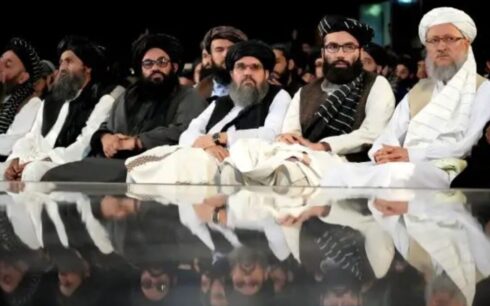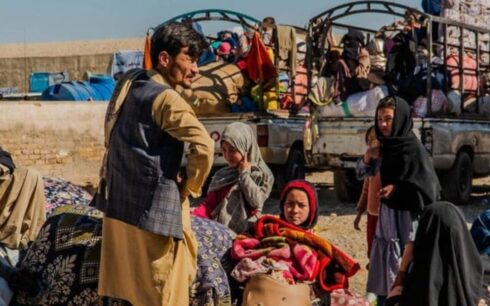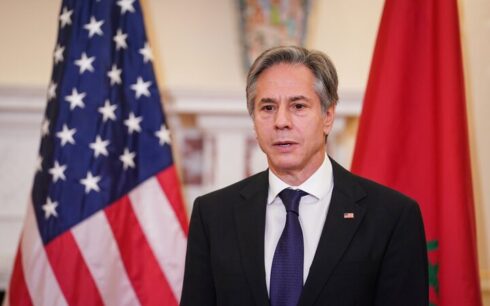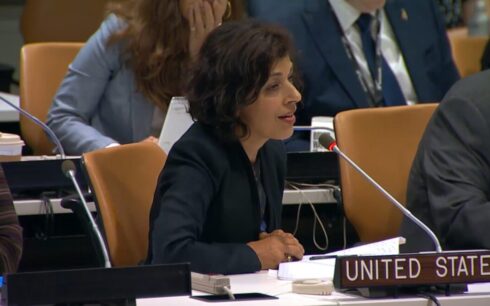Afghan media outlets in the southern Kandahar province of Afghanistan have been hit hard by economic problems following the Taliban takeover in August 2021.
Prior to August 2021, 12 media outlets operated in the province – eight radio stations, two weekly newspapers, and two private TV stations.
Since the takeover by the Taliban, five of these have closed down. Two closed soon after the Taliban came into power and the other three closed down over the past few months.
Now, only seven radio stations and one private TV channel still operate.
The head of Dunya entertainment radio station, Sayeed Sarwar Agha, said they were forced to close down due to a number of reasons including financial problems as they had relied heavily on advertising revenue to operate. This has dried up, he said.
He also said that restrictions imposed on media outlets by the Taliban, particularly the ban on playing music, had been another reason for going off air.
“Before [the collapse of Afghanistan], we had some public awareness projects and commercial advertisements, which were offered to us because of the large number of listeners of our entertainment programs. But now there are no entertainment programs and we do not have commercial advertisements and we cannot operate either,” Sarwar Agha said.
Before the arrival of the Taliban in Kandahar, there were about 120 people working in the media in the province, including 12 women. Today, there are no women working in the sector and the total number of men is down to 67.
Qadria, one female journalist who worked for several years for provincial media outlets, has been unemployed since the Taliban takeover and faces enormous financial hardships.
“Previously, I used to work for Hewad TV in Kandahar, but its broadcasts were stopped and all the employees became unemployed. No one is giving me a job now, and my economic situation is bad. I don’t know what to do,” she said.
Many male journalists in the province are also unemployed and have been forced to take on other jobs to support their families.
Hayatullah Sark, a former presenter for Zema Radio, now sells soup in PD2 of Kandahar city. He stated that economic problems have forced him to work on the streets.
“Thank God, [at least] I have a good income on a daily basis, but working in the media is better. I hope that media outlets resume operations as before,” Sark added.
Problems journalists face
Afghan journalists in Kandahar face major challenges – including a lack of access to information, restrictions, pressure, and censorship by the Taliban.
A number of Taliban officials demand journalists share their reports with them before publishing and that they avoid publishing stories criticizing the group.
The spokesmen for Kandahar’s governor, police, and municipality share details about their activities and meetings only, while other provincial entities neither have a spokesperson nor provide media outlets with information.
One foreign journalist, who wished to remain anonymous, said that Kandahar has become a hell for journalists and that it takes a lot of time to get information from an official.
“I mostly follow productive reports and I need to have responses from different sides. When I approach the Taliban officials, they make excuses and if I contact them several times, they threaten me,” he said.
Meanwhile, social media users are also facing many restrictions as they are being monitored by the Taliban, and in some cases, social media users have been detained and tortured for posting critical comments online.
One Facebook user, Bashir Arman, was uploading posts critical of the Taliban and was arrested at the pharmacy where he was working in PD4 of Kandahar on November 29, 2022. His whereabouts are still unknown.
What does the Taliban say?
Kandahar Press Club, the Journalists Safety Committee and the Independent Journalist Association of Afghanistan along with the Taliban-run information and culture directorate have however started holding monthly meetings to solve problems of journalists in Kandahar.
Hafiz Noor Ahmad Saeed, head of the directorate, said that the Taliban caretaker government supports the free activity of media and journalists and was “trying to provide them with a better working environment.”
Saeed claimed that no media outlets have been forced to suspend operations due to Taliban pressure since their takeover and that those that did close down, did so because of the closure of embassies and projects, which helped fund them.
He added that the Taliban is committed to giving journalists access to information and resolving their problems.
“We don’t have any problem with the media outlets, the media and journalists are valuable for the system and we support them. In order to support the media, their crimes were forgiven and some other support programs, including providing them with lower electricity prices are also under consideration,” Saeed said.
Another journalist in Kandahar said however that all the media outlets and journalists in this province are monitored closely by the Taliban intelligence unit, which pays no attention to the opinions of other officials.Under the former government, the media in Afghanistan had been one of the country’s greatest achievements over the 20-year reign of the Republic.
However, mostly all advancements made in this time have been rolled back under the Taliban and while private outlets continue to operate, they are mostly all dealing with serious financial constraints, among a host of other issues.





